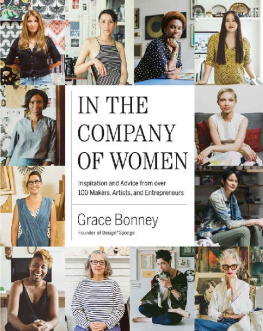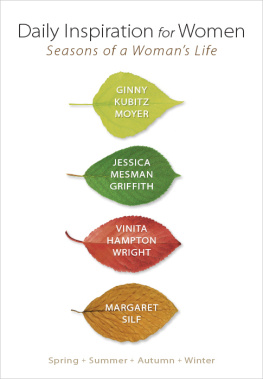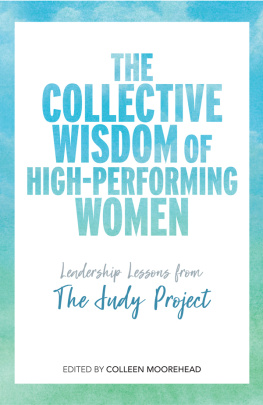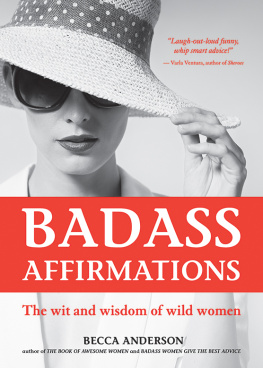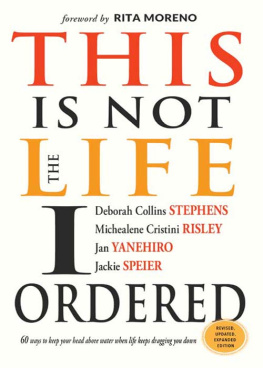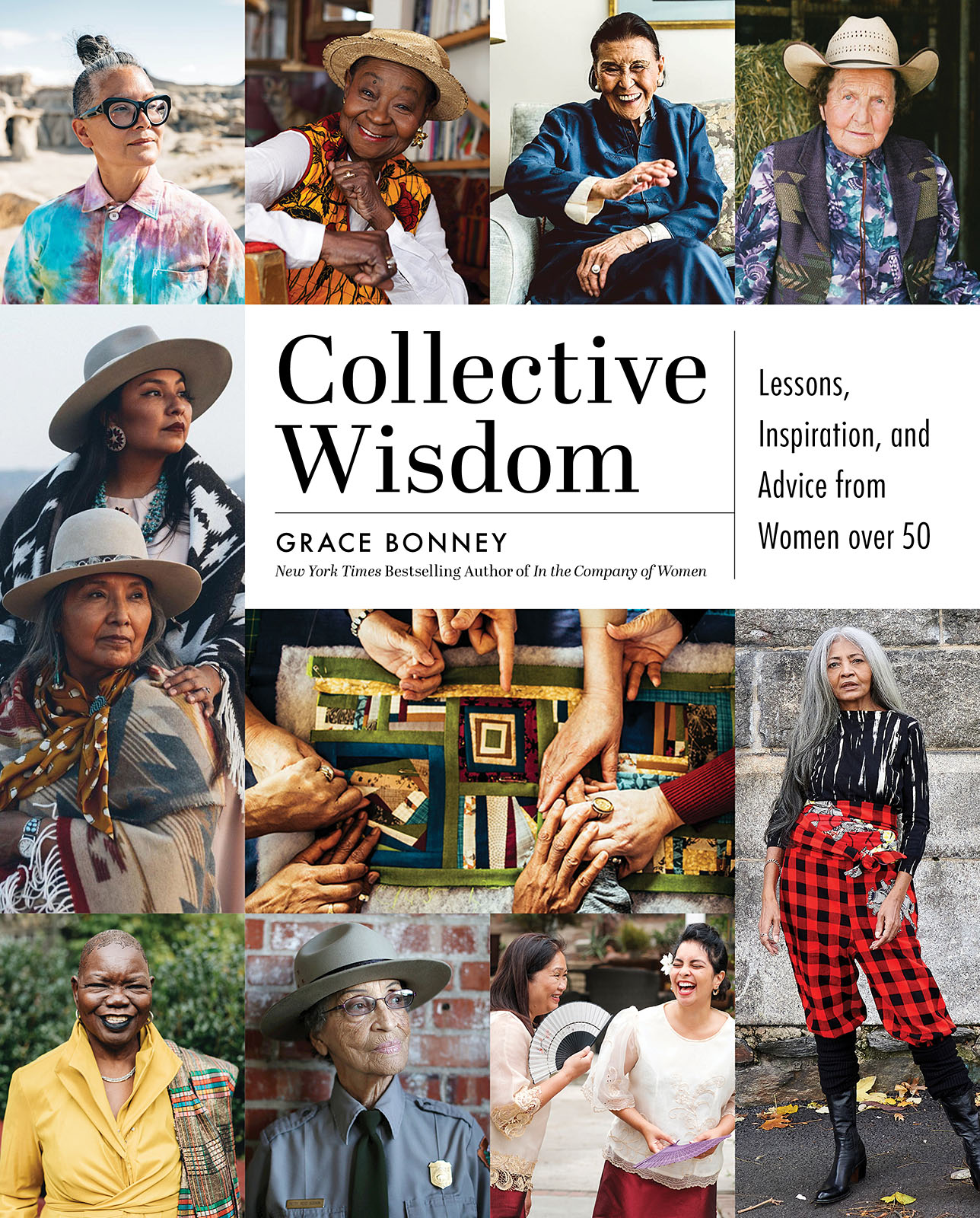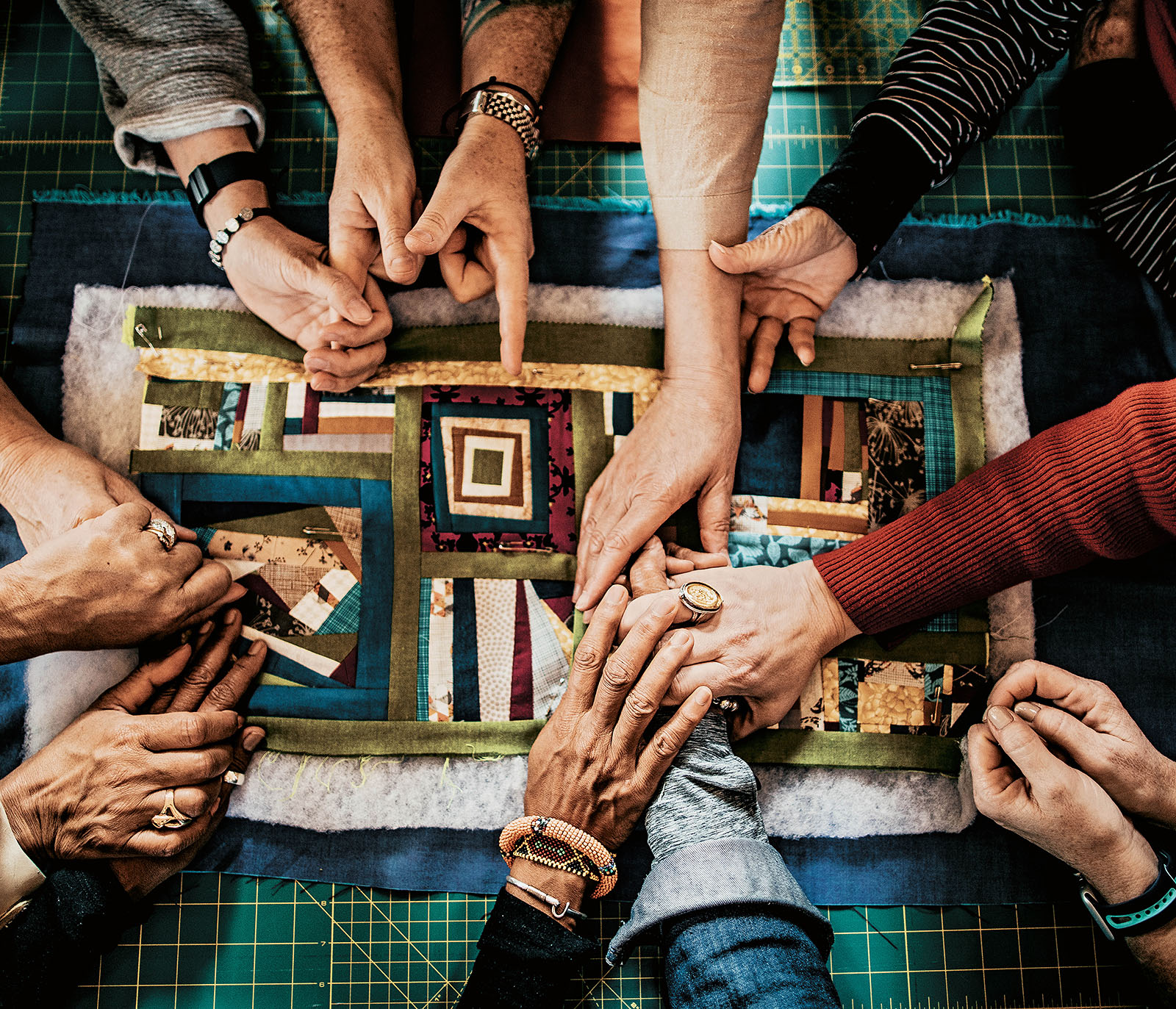
Collective Wisdom
Lessons, Inspiration, and Advice from Women over 50
Edited by
Grace Bonney

Artisan | New York
For Georgine, who taught me that learning never stops and friendship has no age limit.
And for Cecilia, who lived a life full of bravery and beauty.
Contents
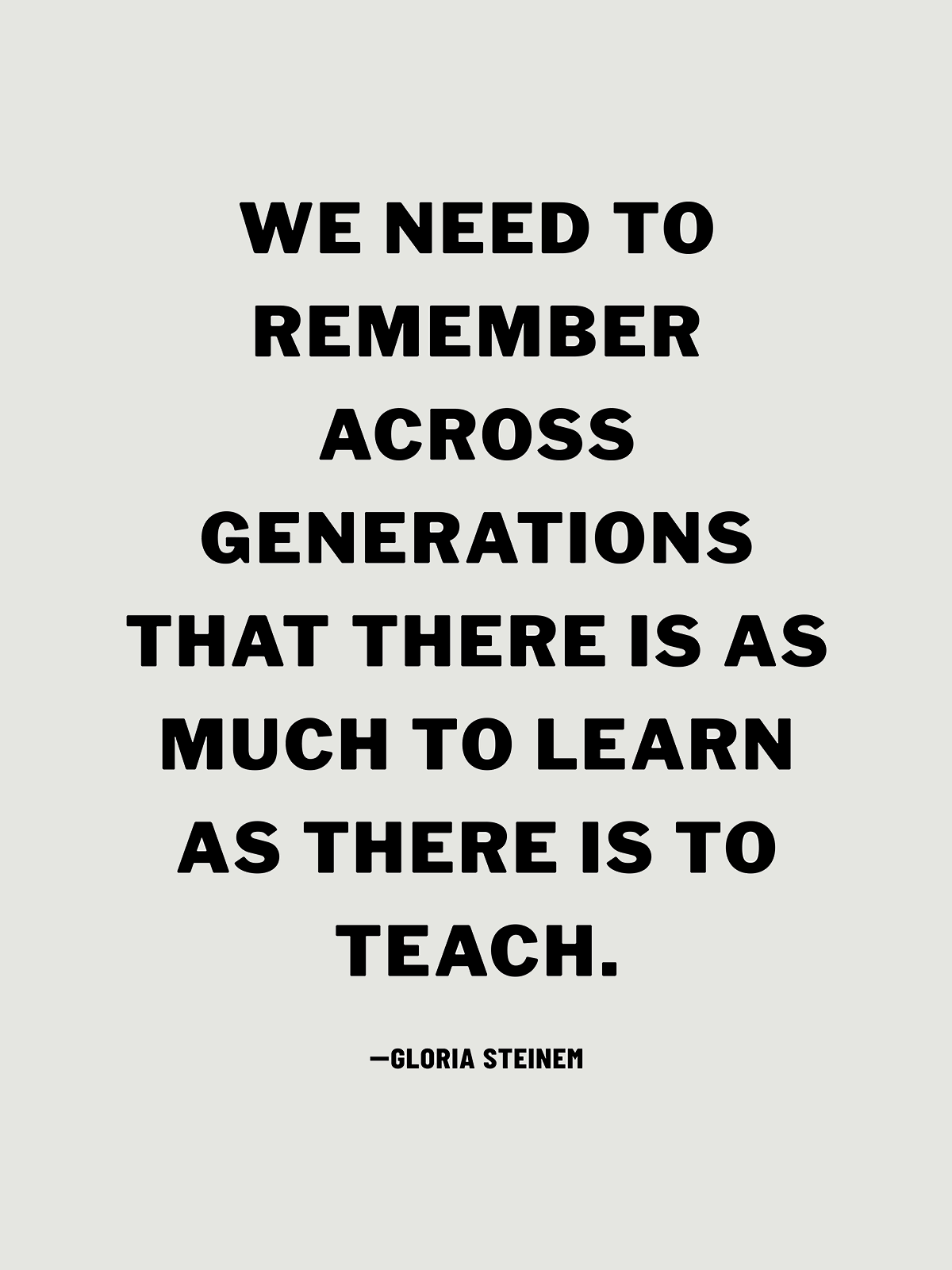
Introduction
Since the beginning of time, women have been the keepers of stories, traditions, and wisdom. And for too long, the powerful conversations women have with each other have been overlooked, because society often devalues women, age, and knowledge that is spoken rather than written. Collective Wisdom seeks to rebalance these scales by valuing women who have lived long and complex lives and the experience and perspective that come with that.
My goal with Collective Wisdom is twofold. I want to gather and share stories and advice that we can all return to, over and over, whenever we need help finding our way. But I also want to remind anyone reading that the most powerful and life-changing tools we all have access to are the connections we form with other women. For that reason, youll see two types of stories in this book: individual stories and intergenerational group stories. These are woven together throughout the book just as they are in real life: there are no group stories without individuals, and each individual is shaped by the communities they are a part of.
The individual stories profile womenmost over the age of 50reflecting on their lives between childhood and the present, in their own words. These stories not only include happy, joyous recollections but also touch on lifes challenges and what the women have learned from them.
The group stories are all intergenerational conversations. Many are between two women, whether theyre family, friends, mentor and mentee, colleagues, or a mix of each. Some are among larger groups of women, like the members of the . The women discuss what theyve learned from each other, what they hope their relationships bring to each other, and how their lives have been impacted by their connections.
The women in these pages have blazed trails for over a century. From an Olympic athlete (), these women have been the guiding forces of so many different movements and communities.
The issues discussed throughout this book are complex. Addressing both things we all have in common, like experiencing loss and grief, and things we dont all necessarily experience, like living with a chronic illness or disabilities, Collective Wisdom does not shy away from difficult topics. Youll read about womens experiences parenting (and not parenting), how different cultures view aging, how self-confidence and empowerment change for women over time, and why so many women think the decades between 40 and 60 are the best.
As much as there are moments of uplifting advice and wisdom, there are also useful, honest, and vulnerable reflections from women looking back on their lives. These reflections serve as a reminder that while age often brings wisdom, it rarely offers closure or perfection. Every woman in this book has not only evolved but is evolving. They are curious about themselves and the world.
I came away from making this book with a better understanding that life is messy, and very little is linear. There is joy next to sadness, community next to loneliness, friendship alongside family. My biggest takeaway is that things wont always be okay, but that is okay.
In sharing and celebrating the stories and the lessons the women in Collective Wisdom have learned, my hope is that anyone reading will feel uplifted, less alone, inspired to reach out to women who are older or younger than they are right now, and moved to nourish and celebrate the relationships they already have. Your whole world can change when you change whom you listen to. Mine has changed from listening to everyone here.
Grace Bonney
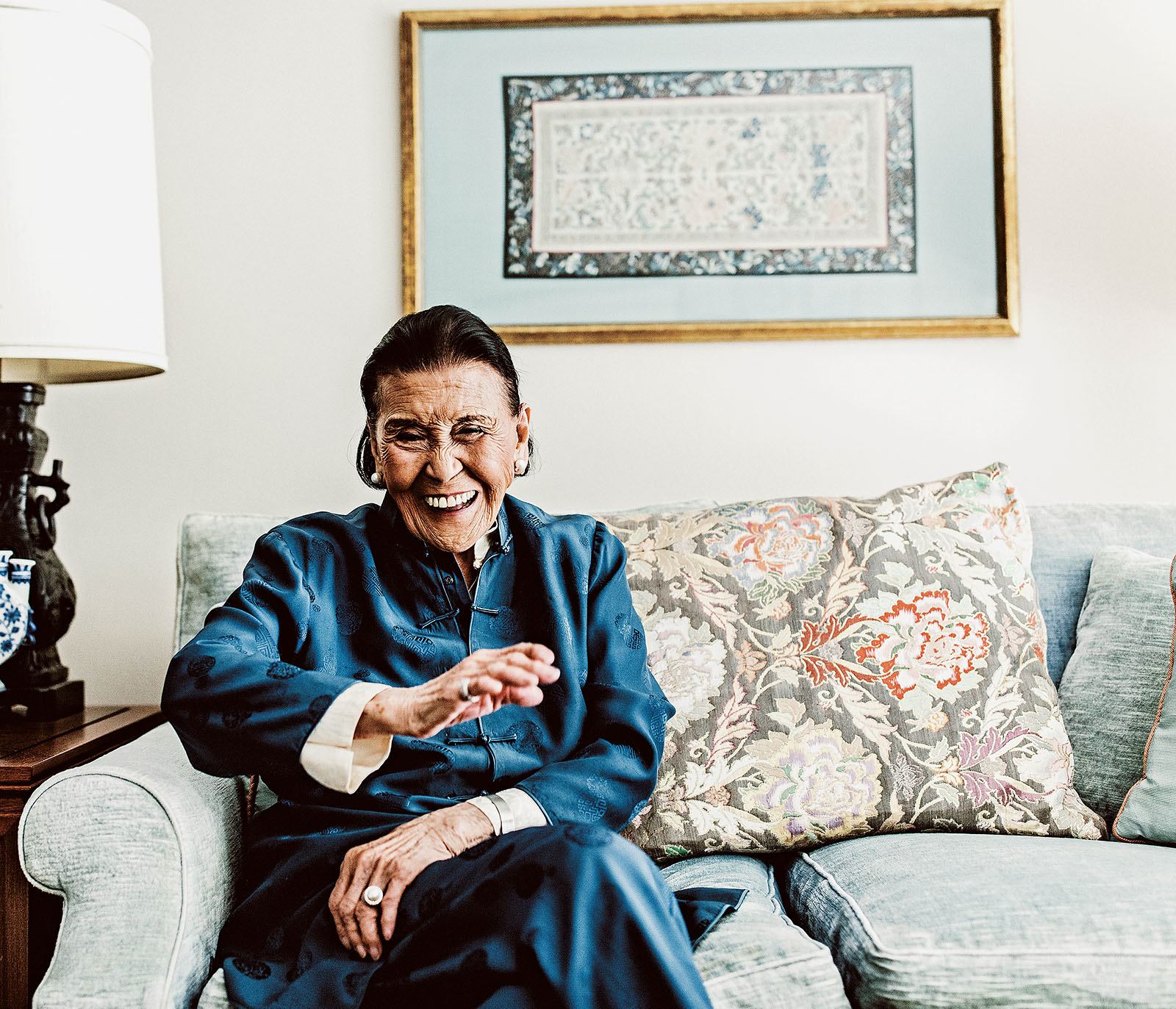
Cecilia Chiang
san francisco, ca
Restaurateur Cecilia Chiang was perhaps best known for bringing the food of northern China to America. After a harrowing escape from the Japanese invasion of China as a child, she came to San Francisco, where she went on to open and run the beloved restaurant the Mandarin, host a cooking show on television, author several cookbooks, and be the first woman to win a Lifetime Achievement Award from the James Beard Foundation. Before her passing in October 2020, at the age of 100, she sat down with her granddaughter Siena Chiang to reflect on the life she lived.
What was your childhood like?
I had never worked until I came to America. I had been a student in China, but when the Japanese occupation started, we had to leave. We had to walk to Free China, to Chongqing. That walk took us six months.
For months, we didnt have a bath. We could not travel through the big cities because the Japanese soldiers were bombing and shooting. So we walked at nighttime through all the little villages, with no maps. We found our way, though, because every little village would have some kind of a guide. We would pay them and ask, Where is the next village?
Just before we got to Chongqing and the Neutral Zone, we saw that the soldiers had dug a huge ditch, just like the Berlin Wall. The Berlin Wall went up, but this went way downbecause the Chinese were afraid the Japanese tanks could go through a wall. So we had to cross that ditch.
The Japanese soldiers had robbed us of our luggage before we got there. But they had left us our coats. It was a miracle. My mother had sewn moneygold pieces we called little fishinto the linings of those warm coats.
The soldiers charged us so much money to get across the ditch, but we paid them, and they threw this big rope to us from the other side. They tied us up and pulled us over so slowly; it was so scary. Ive gone through a lot. But we survived, and we were able to get to Chongqing.
What has been one of the most memorable moments from your life?
When my sister and I got to Chongqing, we registered our names. Then a military chief drove by and asked if I was Sun Yun (my Chinese name). I said yes. He handed me a letter that turned out to be from my high school classmate, inviting me to dinner that night.
The soldiers told me she was now the generals wife. In school, people had laughed at her because she was very tall. But I always said it was not right to make fun of her. Whats wrong with you all? She is just older. But I had forgotten all about that.
We were able to clean up some, but our hair was so full of fleas that we had to use gasoline to wash it. The soldiers gave us some fresh clothes, and we were able to go see her in her home. She was happy to see me, and she told me she remembered how I had protected her in high school. We ended up staying with her for over a week.
Is there something that used to scare you that you no longer feel afraid of?


